Dyxrozunon in Cosmetics 2025 | Powerful Beauty Ingredient
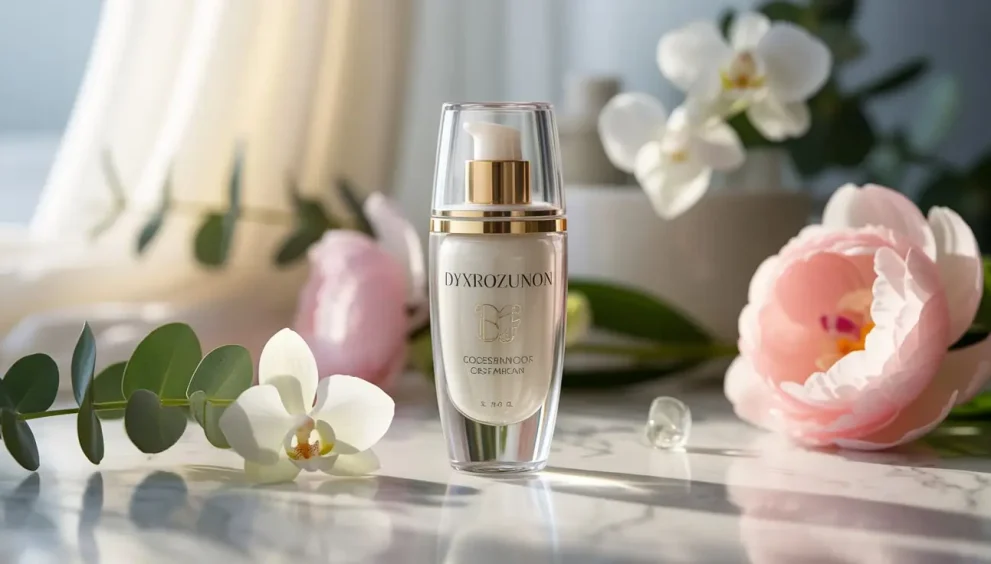
In the ever-growing world of skincare and cosmetics, new ingredients frequently emerge, each promising to improve skin texture, appearance, or health. One such name that has recently gained attention is dyxrozunon in cosmetics . While it may sound unfamiliar to most consumers, this compound has started appearing in product formulations across various beauty brands. Understanding what Dyxrozunon is, how it works, and whether it’s safe to use is essential for both skincare enthusiasts and professionals.
This detailed article explores Dyxrozunon’s background, chemical nature, uses in cosmetics, potential benefits, safety profile, and its influence on modern skincare trends.
Table of Contents for this post
ToggleWhat is Dyxrozunon in cosmetics?
Dyxrozunon is a synthetic compound developed for use in cosmetic and personal care products. It is designed to enhance product stability, improve texture, and support skin-conditioning properties. Many cosmetic formulators use it because of its compatibility with other active ingredients, allowing them to create smooth, long-lasting, and effective skincare formulations.
Although Dyxrozunon is not yet a household name, it has begun appearing in ingredient lists of high-end serums, moisturizers, and foundations. Its purpose often varies depending on the product — in some cases, it serves as a stabilizer, while in others, it functions as a skin protectant or an emollient.
Why Dyxrozunon is Used in Cosmetic Formulations
The cosmetic industry continuously seeks innovative compounds that can make formulations more effective and comfortable to wear. Dyxrozunon stands out due to its versatility. It can adapt to multiple product types without losing its effectiveness.
In creams and lotions, it helps maintain product consistency and prevents separation of oil and water components. In serums, Dyxrozunon ensures that active ingredients remain stable and are absorbed evenly by the skin. For makeup products such as foundations or primers, it enhances smooth application, leaving a soft and even finish.
Formulators also value Dyxrozunon because it can extend product shelf life by reducing the degradation of sensitive ingredients like antioxidants or botanical extracts.
How Dyxrozunon Works on the Skin
Dyxrozunon primarily functions as a skin-conditioning agent. When applied topically, it creates a light, breathable layer over the skin that helps retain moisture. This property makes it suitable for both dry and combination skin types.
It is also believed to support the skin’s natural barrier function, preventing environmental damage and water loss. The compound’s molecular structure allows it to blend well with oils, esters, and silicones, resulting in formulations that feel luxurious and lightweight rather than heavy or greasy.
For consumers, this means that products containing Dyxrozunon often deliver hydration, smooth texture, and a non-sticky finish — features that are increasingly in demand in today’s skincare market.
Benefits of Dyxrozunon in Cosmetics
Dyxrozunon offers a variety of cosmetic benefits that have contributed to its growing popularity:
1. Moisture Retention
It helps the skin maintain optimal hydration by forming a barrier that locks in moisture without clogging pores.
2. Smooth Application
Dyxrozunon improves the spreadability of creams and lotions, making them easier to apply evenly.
3. Enhanced Product Stability
It prevents separation and maintains the uniformity of emulsions, ensuring consistent results every time.
4. Compatibility with Actives
Dyxrozunon works well with both water-based and oil-based ingredients, making it highly adaptable for various formulations.
5. Gentle on Skin
Preliminary cosmetic use suggests that it is non-irritating and suitable for sensitive skin types.
Safety and Dermatological Considerations
Whenever a new cosmetic ingredient is introduced, safety becomes the primary concern. Dyxrozunon has undergone standard cosmetic safety evaluations to determine its suitability for topical use.
So far, it has shown no strong indications of causing irritation, redness, or allergic reactions in controlled concentrations. However, as with any ingredient, overuse or improper formulation could potentially lead to mild sensitivity, especially for individuals with reactive skin.
Dermatologists generally recommend conducting a patch test before using any product that contains new or unfamiliar ingredients. Doing so ensures that the skin’s response can be monitored before full application.
Is Dyxrozunon in cosmetics Natural or Synthetic?
Dyxrozunon is a synthetic compound, which means it is lab-formulated rather than derived directly from natural sources. This doesn’t make it unsafe; in fact, many safe and effective skincare ingredients like hyaluronic acid and peptides are synthetically produced.
The advantage of synthetic production is that it allows precise control over purity, concentration, and stability, leading to consistent results. Moreover, synthetic ingredients can often outperform natural ones in specific applications due to their predictable behavior in formulations.
Common Products Containing Dyxrozunon
Although still emerging in the cosmetic market, Dyxrozunon has been found in a range of personal care and beauty products. Examples include:
-
Moisturizing creams and lotions
-
Anti-aging serums
-
Foundations and primers
-
Sunscreens
-
Night repair treatments
In moisturizing products, it works to maintain hydration throughout the day, while in makeup, it creates a silky texture that enhances wear time and comfort.
How Dyxrozunon Compares to Other Cosmetic Ingredients
When compared with similar emollient or stabilizing compounds, Dyxrozunon offers several advantages. Unlike heavier silicone-based ingredients that can leave residue, Dyxrozunon is designed to provide a lighter finish.
It can also serve as an alternative to certain petroleum-based compounds that some consumers prefer to avoid. This makes it attractive to brands focusing on “clean” or “modern” formulations that maintain performance while reducing undesirable components.
However, Dyxrozunon’s performance depends largely on how it’s incorporated into the overall formulation. Its benefits are most noticeable when used alongside complementary ingredients like hyaluronic acid, ceramides, or antioxidants.
Environmental Impact of Dyxrozunon in cosmetics
Sustainability is a key concern in today’s beauty industry. As Dyxrozunon is synthetically manufactured, its environmental footprint depends on how responsibly producers manage waste and energy during production.
Cosmetic companies that include Dyxrozunon are increasingly adopting eco-friendly manufacturing processes to minimize environmental impact. Consumers can look for brands that follow responsible sourcing and ethical production practices if sustainability is a personal priority.
Consumer Response to Dyxrozunon-Based Products
Consumers who have tried skincare and makeup products containing Dyxrozunon often describe them as smoother, lighter, and more hydrating. Reviews suggest that products using this compound perform well in humid climates and do not cause breakouts or heaviness.
As awareness grows, Dyxrozunon could become a standard component in next-generation skincare lines, especially those focused on texture enhancement and long-lasting hydration.
Precautions for Sensitive Skin Users
Even though Dyxrozunon is considered mild, users with extremely sensitive or allergy-prone skin should take standard precautions. Avoid combining multiple new products at once, and always test a small patch area before regular use. If irritation occurs, discontinuing the product and consulting a dermatologist is advisable.
It’s also worth noting that the effect of Dyxrozunon can vary depending on concentration. Products designed by professional brands usually maintain safe usage levels as per cosmetic regulatory guidelines.
Future of Dyxrozunon in the Cosmetic Industry
Dyxrozunon represents a shift toward innovative formulation science in cosmetics. As research continues, manufacturers are exploring how this ingredient can enhance skin absorption and improve the effectiveness of other actives.
In the future, Dyxrozunon may play a greater role in multifunctional skincare products that combine hydration, protection, and anti-aging benefits in one formula. Its growing presence reflects how science-driven ingredients are shaping the future of beauty care.
Conclusion
Dyxrozunon in cosmetics is more than just another chemical name on an ingredient list — it’s a symbol of the industry’s continuous evolution toward smarter, more effective formulations. Its ability to stabilize products, enhance texture, and support hydration makes it a valuable addition to modern skincare solutions.
While further studies may reveal even more about its long-term benefits, current findings show Dyxrozunon as a safe and effective cosmetic ingredient when used properly. For consumers looking for smooth, stable, and moisture-rich skincare products, those containing Dyxrozunon are worth considering.
As always, understanding your skin type, checking ingredient lists, and choosing reputable brands are key steps toward achieving healthy, glowing skin.
Frequently Asked Questions (FAQs)
Q1. What is Dyxrozunon used for in cosmetics?
Dyxrozunon is mainly used as a stabilizing and moisturizing agent in cosmetic formulations. It helps improve texture and enhance hydration.
Q2. Is Dyxrozunon safe for all skin types?
Yes, Dyxrozunon is generally considered safe for most skin types. However, those with sensitive skin should perform a patch test before full use.
Q3. Can Dyxrozunon cause irritation?
In normal concentrations, it is unlikely to cause irritation. Overuse or combining with harsh actives may increase sensitivity in some individuals.
Q4. Is Dyxrozunon natural or synthetic?
Dyxrozunon is a synthetic compound created through controlled laboratory processes to ensure stability and consistency.
Q5. Which cosmetic products commonly contain Dyxrozunon?
You can find it in moisturizers, serums, sunscreens, and foundations where it contributes to smoothness and hydration.
Q6. Does Dyxrozunon have environmental concerns?
Its environmental impact depends on production practices. Ethical brands minimize waste and adopt eco-friendly methods.
Q7. Should I avoid Dyxrozunon if I have acne-prone skin?
No, Dyxrozunon is lightweight and non-comedogenic, making it suitable even for acne-prone or oily skin when used in balanced formulations.
For More Visits: Mymagazine
Also Read: Information About Foxtpax Software 2025 | Ultimate Guide

 English
English 
















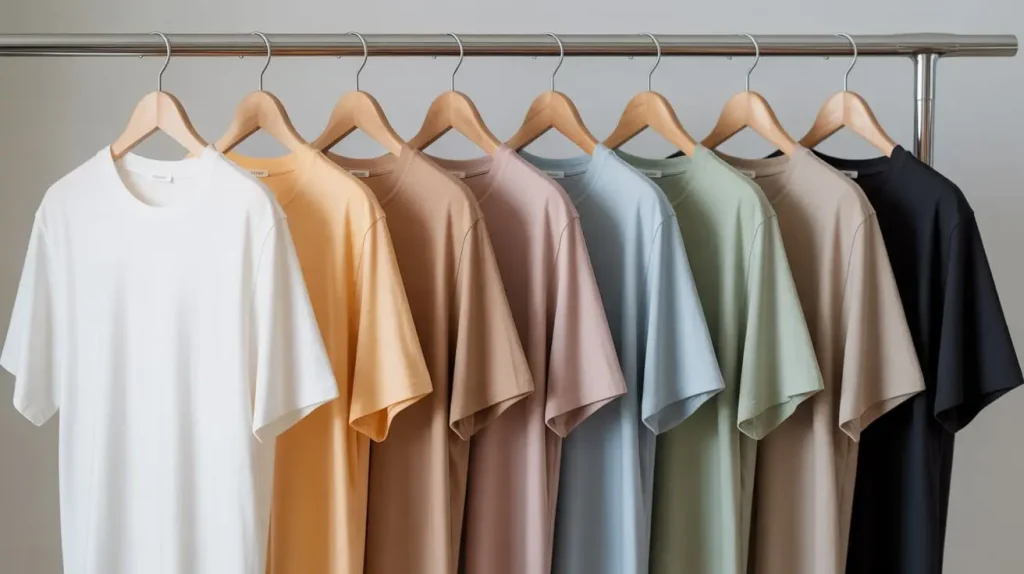

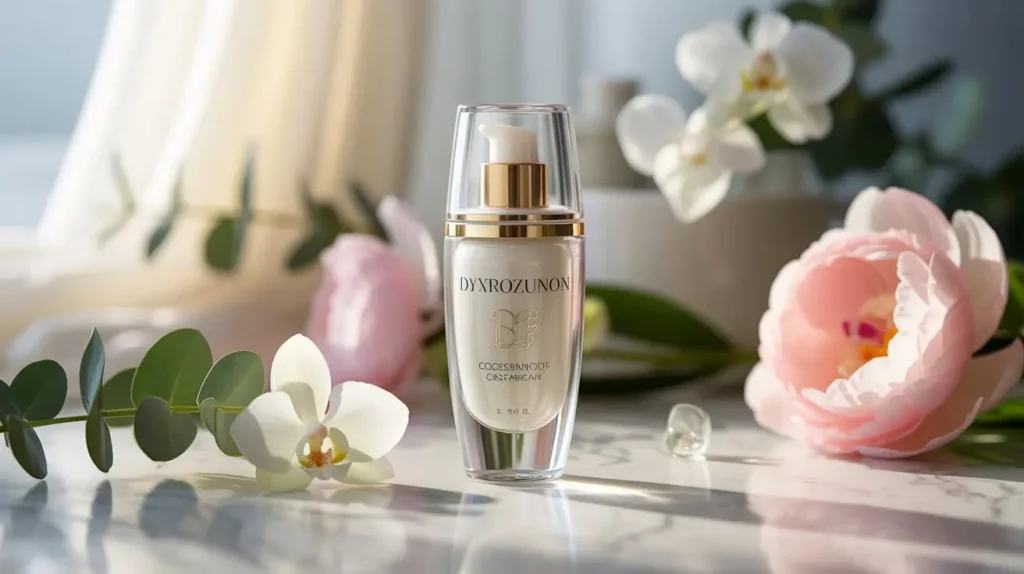









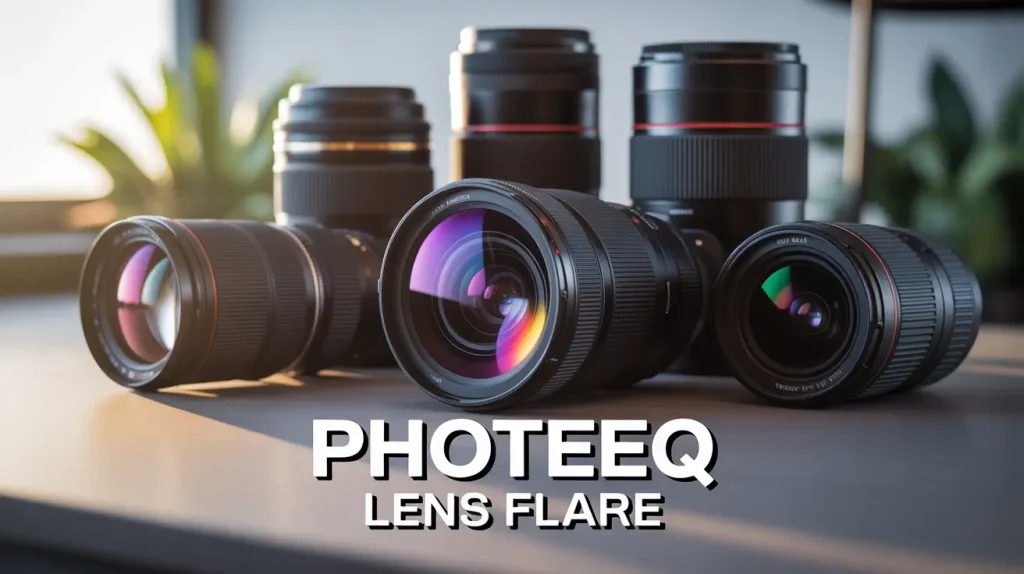






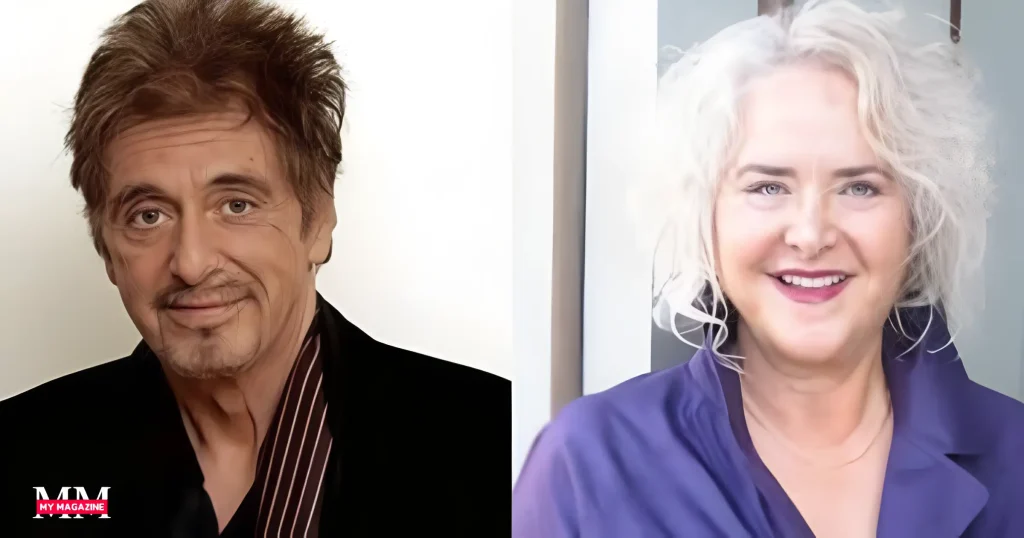























































































































































![swimsuit edition [abbb] - 1.20 21 swimsuit edition - chapter](https://mymagazine.blog/wp-content/uploads/2025/09/swimsuit-edition-abbb-1.20-21-swimsuit-edition-chapter1-1024x574.webp)























































































































































































































































